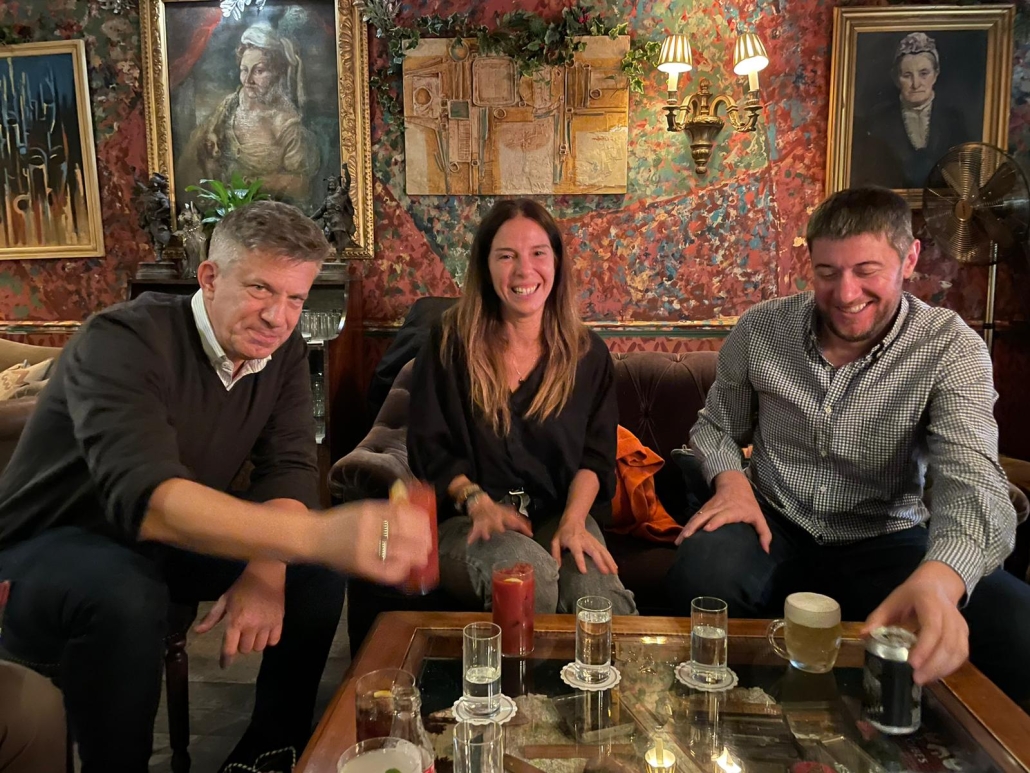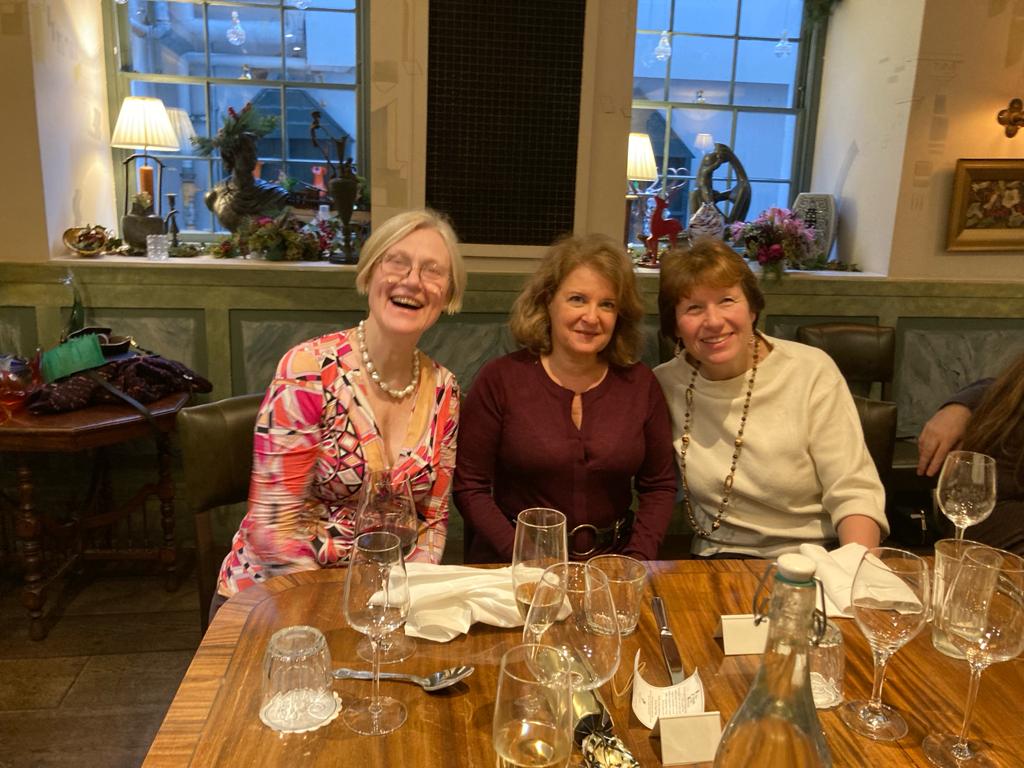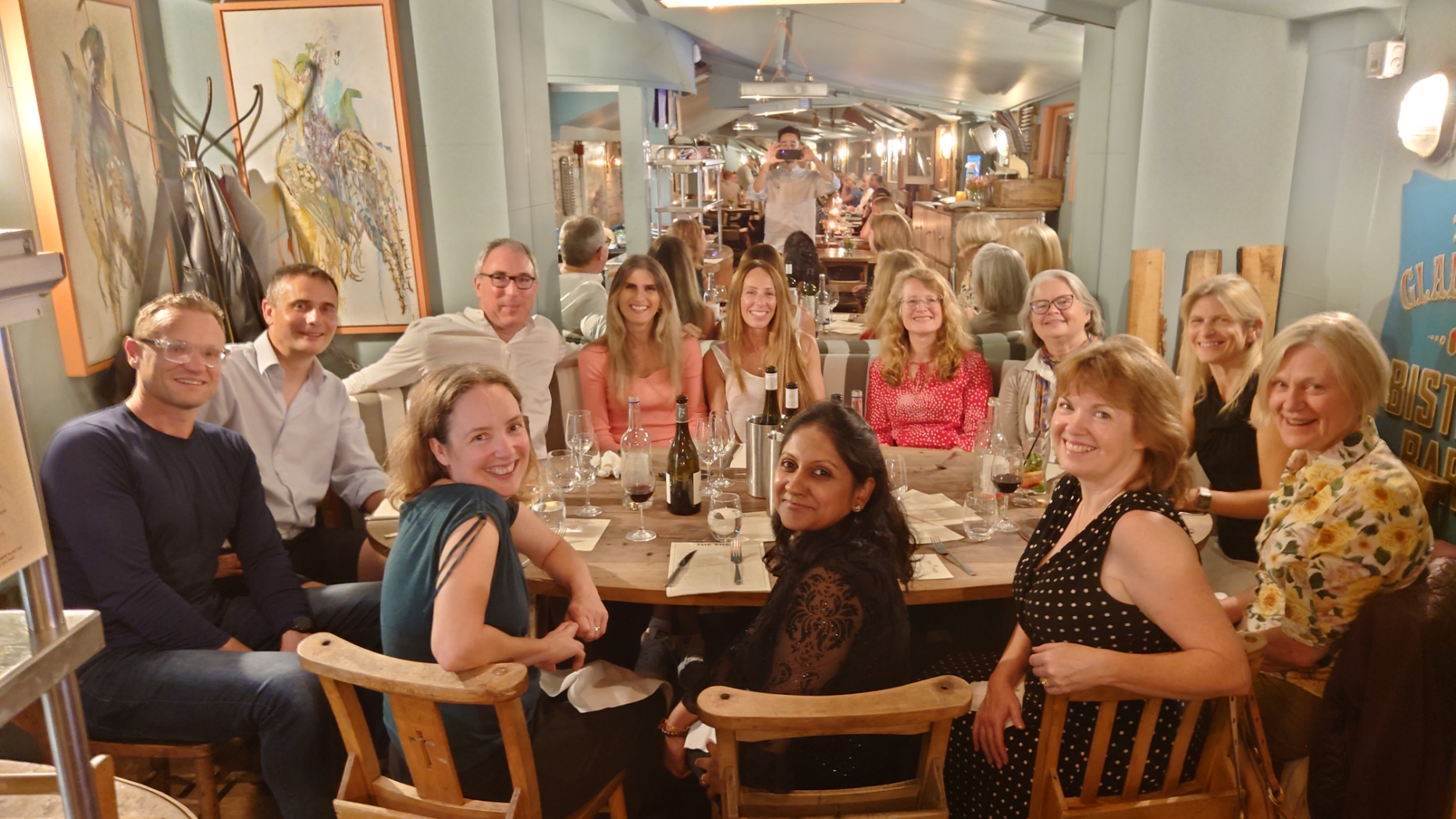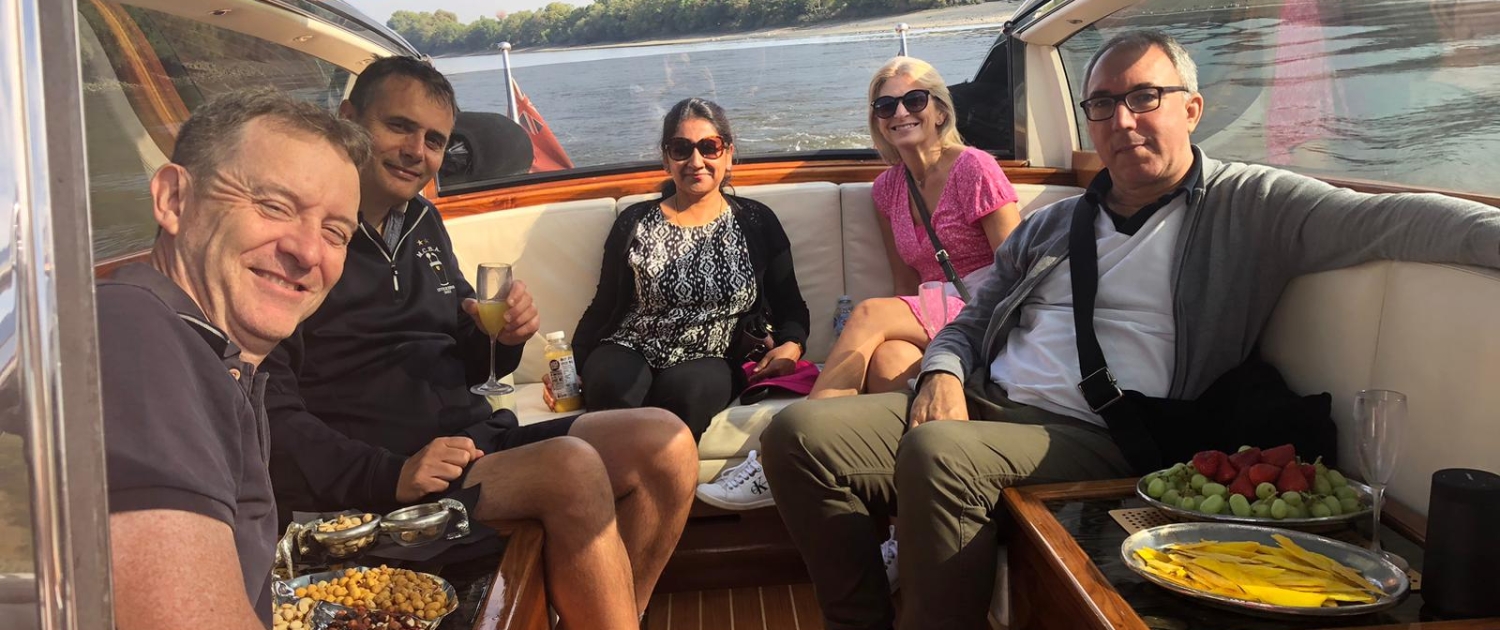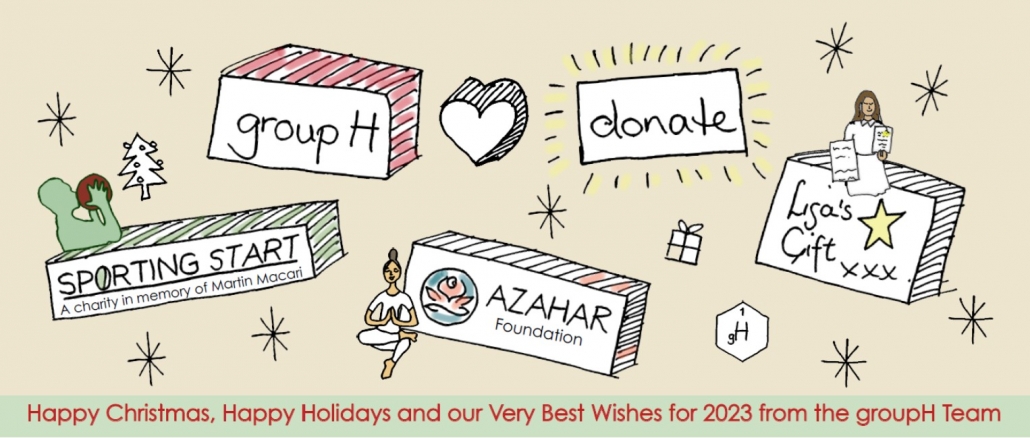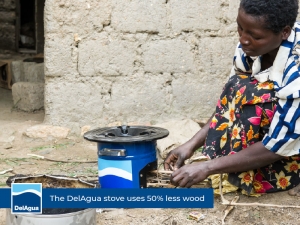
The three-day ephmra annual conference in London featured a line-up of 24 presentations, panel discussions and roundtables, with 200 delegates from industry and agencies. Compared to previous years, we observed an increase in industry delegate participation and an overall younger audience – both positive developments. After three years of online conferences, the joy of face-to-face interaction was very palpable. Here is groupH’s pick of 2023’s key messages.
37% time-saving through Artificial Intelligence
The discussion can be summed up by the phrase: “you’d better embrace AI before it embraces you!” While the jury is still out identifying where exactly AI will be able to play to its strengths, the majority of speakers and audiences anticipate that our jobs as we know them will be ’consigned to Room 101’. The promise is that AI will help in a positive way to reduce time spent on more mundane tasks while freeing up more time for more creative and value-adding activities. However, even the most optimistic advocates did admit that there is still a large amount of uncertainty and that some scepticism and caution is warranted around potential AI drawbacks or pitfalls in this Brave New World.
We heard phrases such as “Revolution with Responsibility” and “Not walking away with fear” during the discussion on AI, which is understandable as topics such as “synthetic data” and “synthetic respondents” have been discussed. While ChatGPT attracts billions of hits, pharma companies protect their corporate network through firewalls. This shows that the question how private, public and corporate use of AI will be managed is still in the process of being answered. AI has a large carbon footprint, is said to be heavily subsidised at the moment (a platform costs $80-100m to be set up), consumes & generates a lot of electricity & heat, and ‘only’ has currently ~100m users. The example of AI, until recently at least, being biased towards giving a reasonable-sounding answer almost to any question, whether the question made sense or not, raises eyebrows.
But ask your AI the infamous question of the difference between cow eggs and chicken eggs and you will notice that it is now further up the learning curve.
As long as AI struggles with complex questions, remains a black-box and is unable to explain the ‘Why?’ behind an answer, and as long as the audience remains aware and critical about its shortcomings, we are not too worried that it could replace market researchers and industry consultants any time soon instead it is likely that it will change the way we all work.
Looking for the killer insight for your launch
Geoff Birkett’s keynote talk on successful launches and a Novartis case study on generating patient insights brought home once more the importance of understanding one’s market and the needs of its patients as a key ingredient for remaining competitive. Market research and business intelligence remain indispensable in generating these killer insights that will differentiate your product. But we also learned that it is not just about the data and its analysis. There are some more intangible factors at play that make the difference between an average, a good and a great product launch. These factors rely on how the launch team is made up, its ethos and, above all, Human and not Artificial Intelligence. Geoff Birkett’s launches worked well in teams who put the Team first, the Organisation second and the Individual third.
No return to pre-pandemic travel
Despite the post-pandemic joy of being able to meet in-person again and general agreement that this offers a much higher quality of interaction and communication, no-one saw a return to pre-pandemic levels of inter-company travel, face-to-face interviews or central location primary research. Whether we like it or not, Zoom, Teams and hybrid-working are here to stay because it maintains or increases productivity and offers more flexibility, while at the same time saves on time and budget.
On the other hand, excellence seems to happen in the form of sharp and insightful outputs and team-building takes place when individuals come together in person and cross functionally in a fun setting. That’s why the 3-days-in-the-office rule that seems popular now won’t go away too soon.
No one suggested though that embracing Mark Zuckerberg’s Metaverse in the same way as AI is necessary at this point. It seems that this question, for now at least, does not yet pose itself.
Behavioural Science
Measuring attitudes and understanding behaviours and anticipating the impact of new treatments on all stakeholders involved in delivering healthcare remains crucial. Hence the discipline of Behavioural Science continues to evolve. As millennial doctors become the majority of the workforce, their needs, attitudes and beliefs will shape future communications. Communication strategies will need to adapt and change from a Push to a Pull philosophy in the process.
Behavioural Science in Forecasting
The ephmra Forecasting Roundtable discussed the potential benefit Behavioural Science can offer in future forecasting projects. Can the COM-B model help to better anticipate physician prescribing behaviour and calibrate preference shares? The audience thought that the COM-B model such as information on the drivers of behaviour change (capability, motivation and opportunity) could be included in questionnaires and help to offer qualitative insights on the potential barriers to or enablers of prescribing and the speed of uptake. Over time, enough data may be collected to also allow the quantitative calibration of a model but this is not anticipated for the very short term.
Target Product Profiles for Primary Market Research
This topic was discussed as part of the Forecasting and Data Analytics Roundtable and distilled the experiences of presenters and audience members into a few, easy-to-remember steps and useful tips on how to avoid common pitfalls. The key elements include:
- Alignment on data and edits with all stakeholders inside agency and client organisations
- An easy-to-read visual format
- Appropriateness of the amount of information presented
- (Perhaps the most important criteria) The imperative to understand and refer to the existing [and perhaps future] clinical and commercial standard-of-care/comparator when drafting the TPP and talking to doctors and payers.
Most tips apply to both qualitative and quantitative PMR, with quantitative assessments requiring additional alignment on the structure and number of attributes listed.
What we won’t forget from the conference
- Rachel Lawes’ talk on semiotics in menopause was one of the most entertaining and educational [there will be a video made available by ephmra soon, we understand]
- Narrow staircases and smaller rooms in old buildings may be just what is needed for a good conference as they prevent anyone getting lost!
- Last, not least, even a fire drill on the third day could not dent the good spirit of presenters and attendees
By Erik Holzinger, groupH, London




